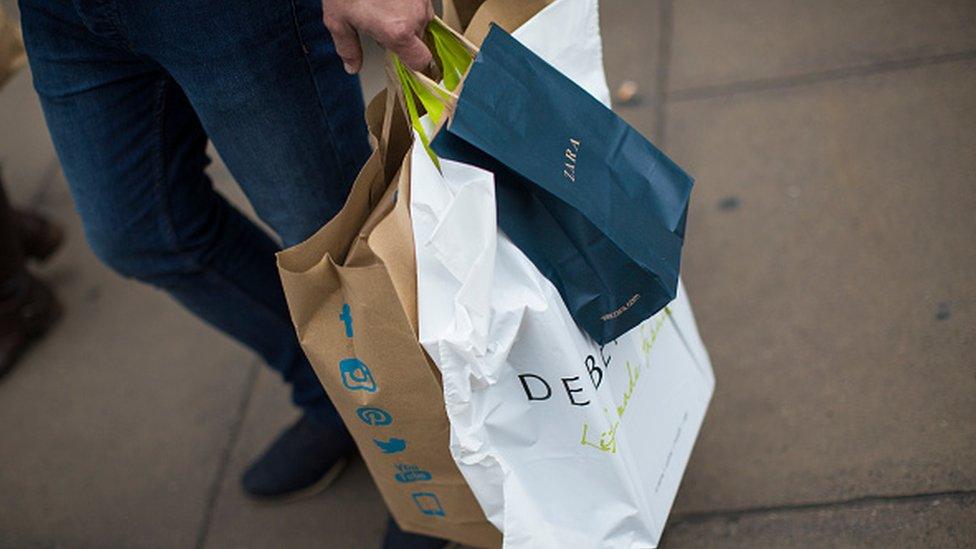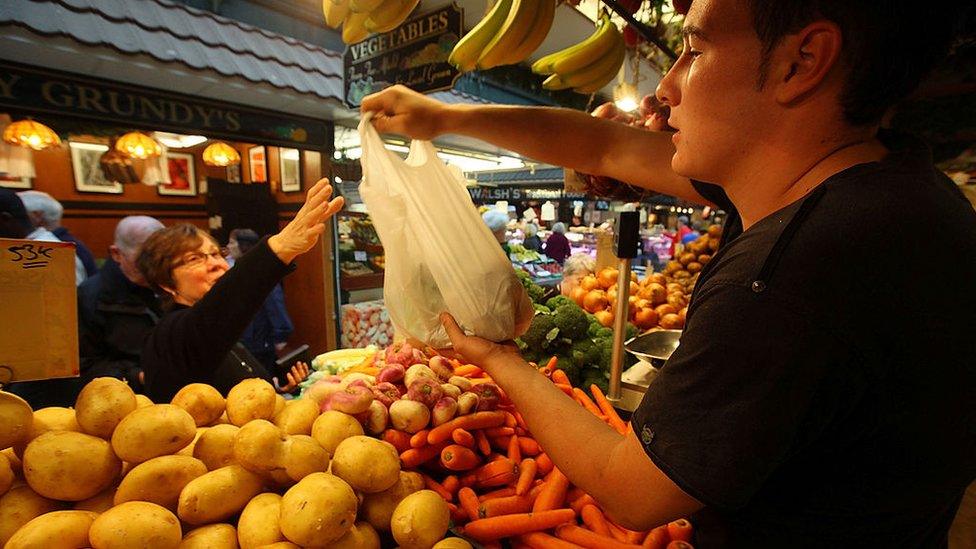Warm weather subdues UK's September retail sales
- Published

Shoppers held off from stocking up in September, according to new retail data, which revealed weak sales of food, footwear and clothing.
The amount of goods people bought last month was flat compared to August.
However, prices rose by 0.1% between August and September, according to the Office for National Statistics (ONS).
Analysts blamed the warmer weather in September for flat sales and cautioned falling sterling and rising inflation may impact future trade.
"Britain's erratic weather has really taken its toll on retailers this year, and a warm September was the last thing that the high street needed," said Keith Richardson, managing director of the retail sector at Lloyds Bank Commercial Banking.
"Deflationary pressures in food and fashion also contributed to a flat spend during the month as a whole."
Over the three months to September, growth was stronger, with retail sales volumes up 1.8% compared with last year.
It was an improvement from a 1.1% increase in the three months to June and the fastest rate since the final quarter of 2014.
'Darker clouds'
"The underlying trend is one of strength, suggesting consumer confidence has remained steady since June's referendum," said Kate Davies, a statistician at the ONS.
However, sterling edged lower against the dollar to $1.2270 following the release of the data.
Recent figures show that inflation rose to 1% in September and while pay growth is still heading upwards, at 2.3% for the three months to August, it has slowed compared to previous months.
Richard Lim, chief executive of Retail Economics, said: "Darker clouds are forming on the horizon. As inflation accelerates more rapidly next year and the impact of a fragile jobs market transpires to weaker wage growth, disposable incomes will come under pressure.
"On the whole, consumers react to their personal experience of the economy in terms of their job security, rising prices in the shops and what happens to their wages. As of yet, not much has happened to affect spending power and so, judging by this latest data, their appetite to spend could be faltering."
- Published18 October 2016

- Published18 October 2016
- Published17 January 2017
